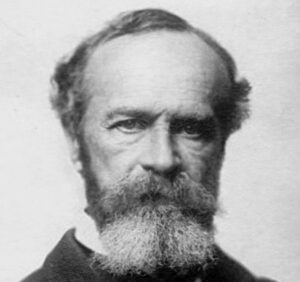
THE SKEPTIC – William James (January 11, 1842 – August 26, 1910) was an original American thinker in and between the disciplines of physiology, psychology, and philosophy. James was the first educator to offer a psychology course in America, at Harvard, earning him the title of “Father of American psychology.”
James also was instrumental in developing the highly influential ideas of pragmatism.
Pragmatism is a philosophical movement that includes those who claim that an ideology or proposition is true if it works satisfactorily, that the meaning of a proposition is to be found in the practical consequences of accepting it, and that unpractical ideas are to be rejected.
Internet Encyclopedia of Philosophy
Philosophical skepticism comes in various forms. It may deny that knowledge or rational belief is possible and urge us to suspend judgment on many or all controversial matters, or claim only that nothing can be known with certainty, or that we can know little or nothing about nonempirical matters, such as whether God exists, whether human beings have free will, or whether there is an afterlife.
James’ book The Varieties of Religious Experience is an investigation of different forms of religious experience. James was likely not convinced that there is a God, a soul, and immortality in the typical Christian understanding.
“Be not afraid of life. Believe that life is worth living and your belief will help create the fact.”
William James
But he was sympathetic to religious experiences and argued in his essay The Will to Believe that people have the right to believe, and thus may very well arrive at a personal, faith-based notion of the meaning or value of life.
In the following YouTube video, neopragmatist Richard Rorty presents the question of whether religion is compatible with science. Rorty tries to restate some of William James’ and John Dewey’s arguments on the topic. To make the issue, he discusses the case of an evolutionary biologist who is also a religious believer. A bit long at an hour and a half, but of importance to those who wonder or even care about religion and science.


[…] in fact only to say that “you now live for my sake.” Fair enough. But skeptics like William James may have retorted that a listener would have the choice to give that postulate on its own more of a […]